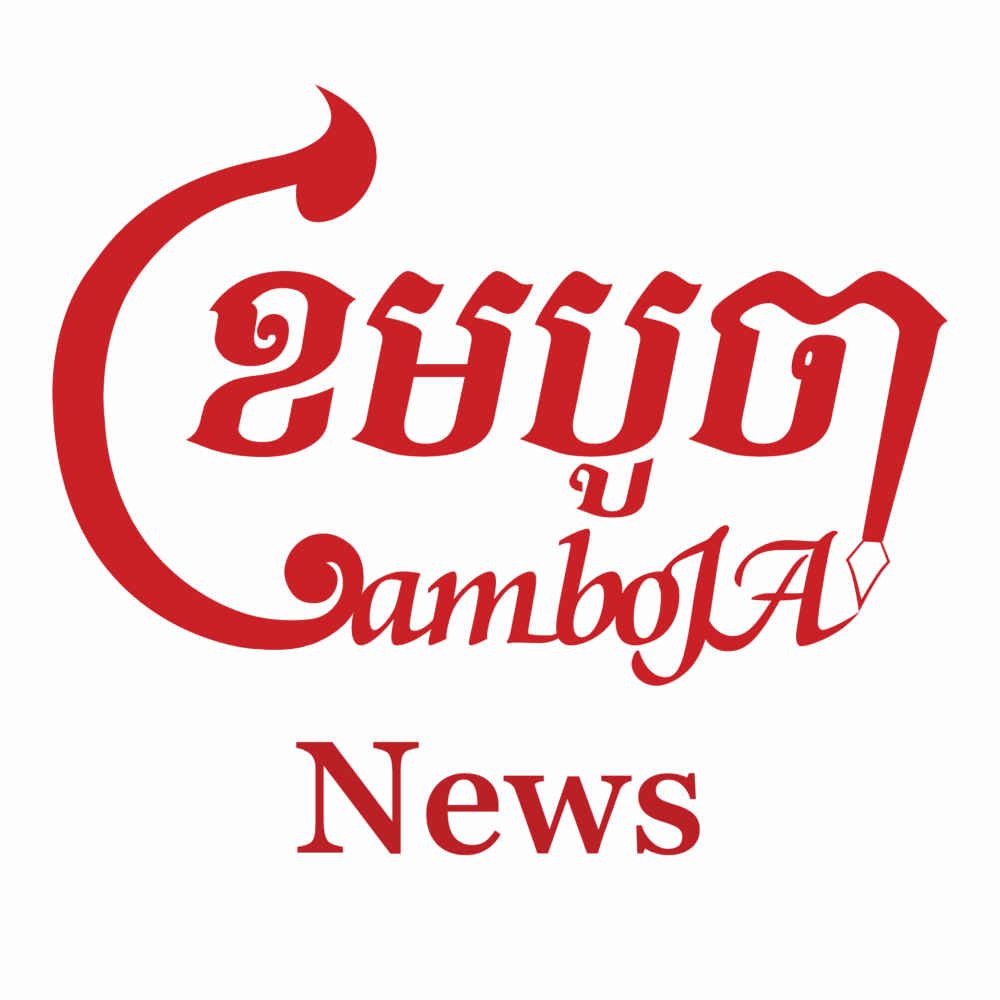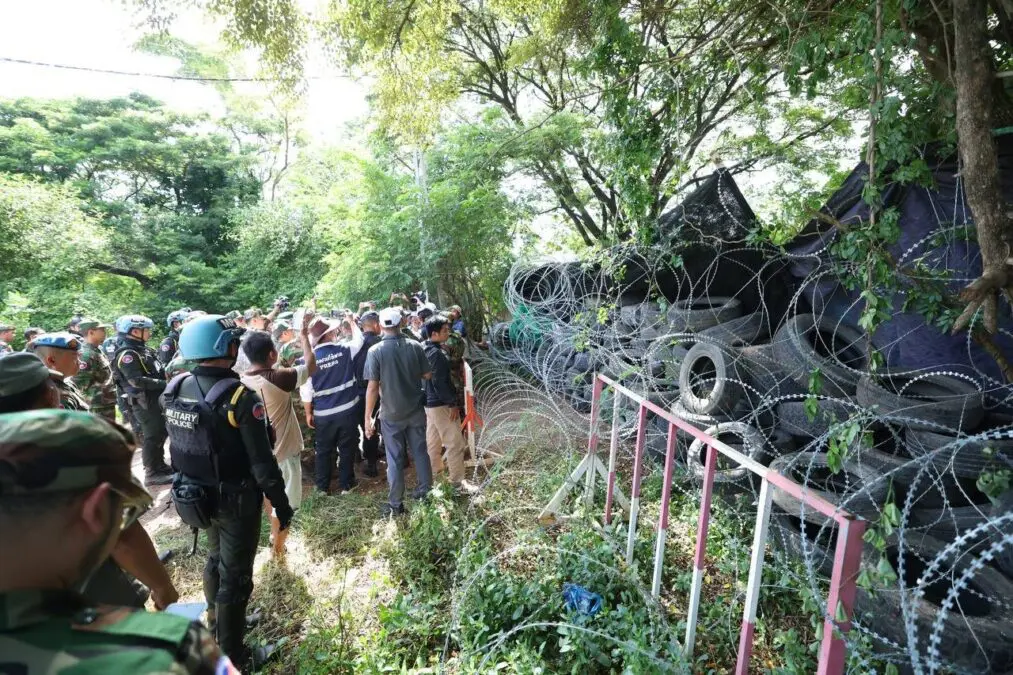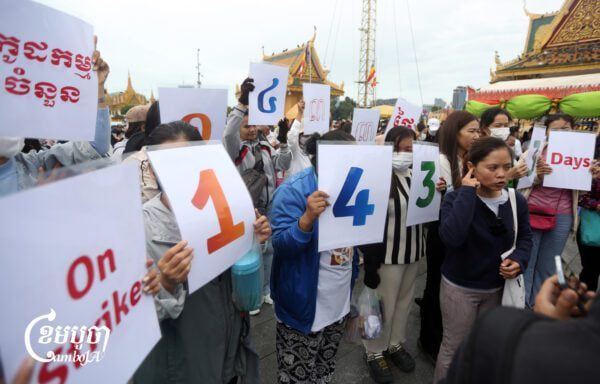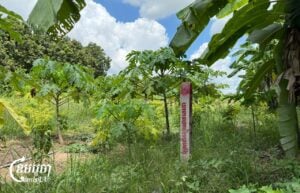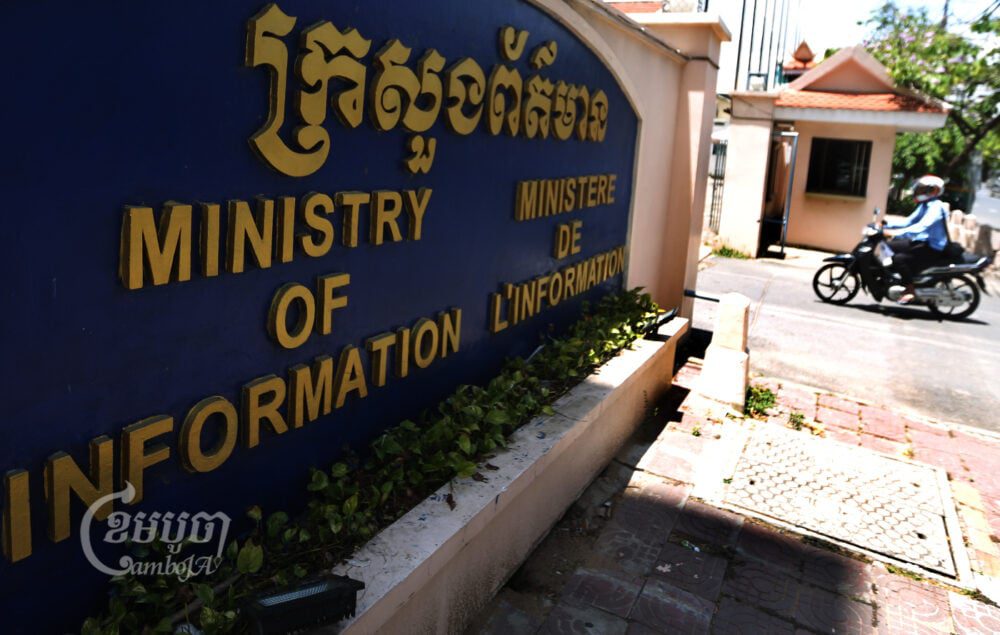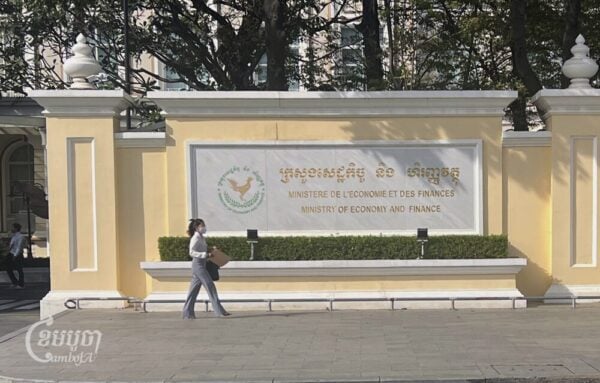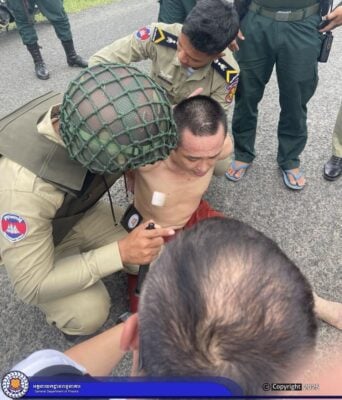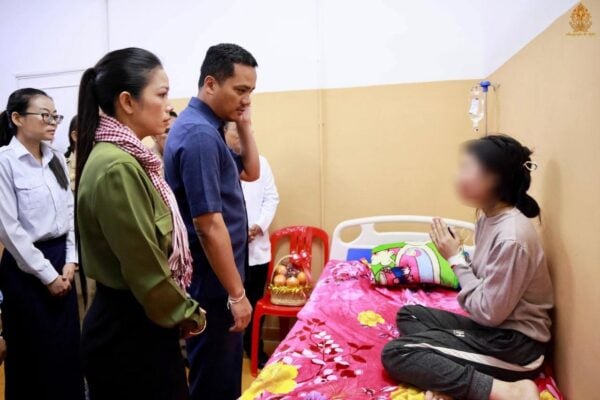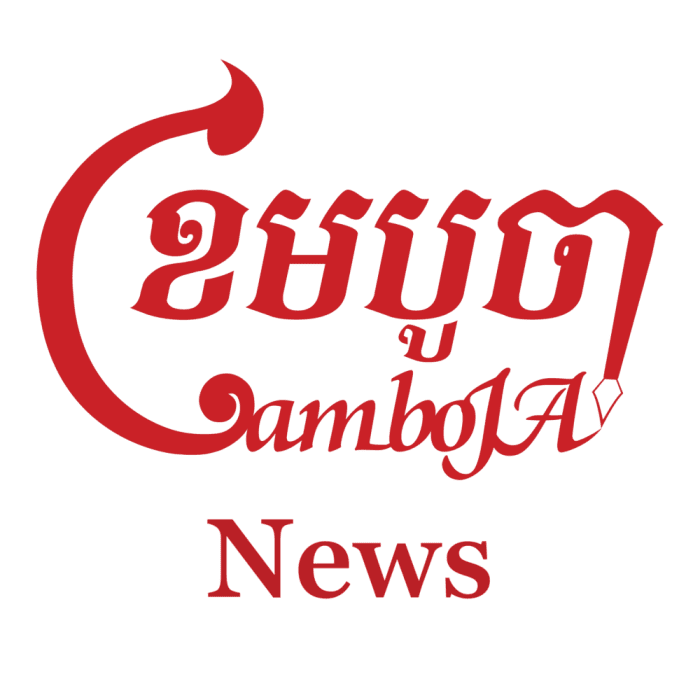UPDATES: Siem Reap Provincial Court stated on Wednesday that the two TSP 68 TV Online journalists have been charged for “collecting information harmful to national defense“. The case has been referred to the investigating judge for further investigation, where he will gather and review all the evidence to determine if both the accused committed the crime, the statement read. There is no trial yet.
Two Cambodian journalists were charged for treason under Article 445 of the Criminal Code for allegedly supplying a foreign state with information, viewed as prejudicial to national defense. The duo, who have been sent to Siem Reap provincial prison, could face seven to 15 years imprisonment if found guilty for their report on the Thailand-Cambodia border clashes in July.
Porn Sopheap and Pheap Pheara, who work for online media TSP 68 TV Online, were arrested on July 31, 2025, after returning from their assignment near the border, according to Licadho.
On September 1, Pheara’s wife, Om Sarath, released a video apologizing to Senate President Hun Sen, Prime Minister Hun Manet, and Information Minister Neth Pheaktra requesting their intervention in her husband’s case. Sarath, who was holding her young child, and another child next to her, pleaded tearfully to the leaders, adding that the photo featured her husband with Cambodian soldiers in front of Ta Krabei temple.
Sarath confirmed that her husband and Sopheap are in pre-trial detention in Siem Reap prison, but was not sure if the social media posts of her husband were the reason behind the treason charges. “I don’t know what my husband is being charged for yet. I have not received a call from the court about this,” she told CamboJA News.
The two journalists were featured in a photograph taken after the ceasefire on July 28 at Ta Krabei Temple—widely shared by Thai media—allegedly showing “live landmines” in the background.
Recently, Banteay Meanchey authorities barred journalists from livestreaming protests of locals in Chouk Chey village near the Thai border. Journalist Meas Sara, who was onsite, was arrested for allegedly continuing to film the scene although his media license was revoked a few days earlier.
Sara was eventually released on bail and placed under court supervision, following a public apology from his wife.
Restrictions on journalists covering issues related to the border conflict have been rife in recent weeks. Another journalist, San Bunthoeun, was also warned by Banteay Meanchey provincial governor Um Reatrey for continuing his live broadcasts of the protests in Choun Chey.
The Information Ministry issued a mandatory protocol requiring journalists, content creators, as well as the public to obtain permission before reporting or filming near military strongholds, and covering border issues. This measure effective August 1 is aimed at protecting national security, ensuring journalist safety, promoting unified government-public messaging, and guaranteeing accurate information related to conflict with the Thai military.
When contacted, Siem Reap Court spokesperson Yin Srang could not confirm Sopheap and Pheara’s case as he had not received any information. “I’ll check,” he said, however, he did not respond to requests for comment at press time. Sat Thida, Deputy Prosecutor and Spokesperson of the Siem Reap Provincial Court, could not be reached for comment.
Ministry spokesperson Tep Asnarith told CamboJA News that he has not received any information about the case from the authorities, adding that the rights and freedom of journalists in Cambodia are guaranteed by the Constitution and media law.
He urged journalists and media practitioners in traditional and modern media to “understand the legal boundaries” and “exercise their rights responsibly”. “Journalists must uphold national interests, adhere to ethics and professional conduct, and avoid broadcasting content harmful to national security or social stability, ensuring responsible and conscientious reporting aligned with the law,” he added.
Nop Vy, executive director of the Cambodian Journalists Alliance Association (CamboJA), said the rise in law enforcements, lawsuits against journalists, and arrests during the border conflict highlights the need for journalists to understand professional ethics, as well as the importance of recognizing the limitations of where they can report.
“Some journalists do not know that they crossed the boundary because the authorities did not make the law clear where journalists are prohibited from reporting. This will lead to confusion and can result in danger for journalists who go there to take photos.”
“I seek their understanding and only issue warnings to ensure that journalists are equipped with a clear understanding on how to provide information to the public [about conflict] accurately,” he added.
Meanwhile, the Nationality Law has been put into effect, allowing the revocation of Cambodian citizenship of those convicted of treason or colluding with foreign powers, in order to strengthen national unity amid border tensions.
Critics have warned that the law’s vague wording could suppress freedom of speech, and used to threaten activists, journalists, and dissenting voices, with statelessness.
Note: This story was updated at 1:20 p.m, September 10, after receiving a statement from Siem Reap provincial court.
